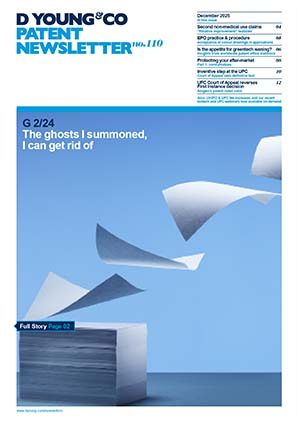Actavis v Eli Lilly: Ripples
The ripples of the UK Supreme Court’s decision in Actavis v Eli Lilly continue to be seen in UK jurisprudence. In BL 0/664/17 Ajit Lalvani, Kartar Singh Lalvani and Robert Peter Taylor, the UK Intellectual Property Office (UKIPO) considered whether EPO jurisprudence was now binding in preference to UK jurisprudence except in specific circumstances. This may have had a bearing on whether the EPO’s problem/solution approach or the English Pozzoli test should have been applied to the question of obviousness.
In Actavis v Eli Lilly, Lord Neuberger held as follows:
Further, while national courts should normally follow the established jurisprudence of the EPO, that does not mean that we should regard the reasoning in each decision of the Board as effectively binding on us. There will no doubt sometimes be a Board decision which a national court considers may take the law in an inappropriate direction, misapplies previous EPO jurisprudence, or fails to take a relevant argument into account. In such cases, the national court may well think it right not to apply the reasoning in the particular decision. While consistency of approach is important, there has to be room for dialogue between a national court and the EPO (as well as between national courts themselves). Nonetheless, where the Board has adopted a consistent approach to an issue in a number of decisions, it would require very unusual facts to justify a national court not following that approach.
The Hearing Officer, Dr Jim Houlihan, concluded that, in his view:
... it is clear from Lord Neuberger’s comment that this is not the intention of the Supreme Court. Rather, my view is that EPO decisions may be persuasive where there is similarity on the nature of the facts between a case in question and an EPO decision.
He, therefore, declined to depart from the Pozzoli test, concluding that the patent was invalid for lack of inventive step.
Case details at a glance
Jurisdiction: UK
Decision level: UK Intellectual Property Office (UKIPO)
Citation: BL O/664/17
Date: 21 December 2017
Link to full decision: http://dycip.com/patent-hair
